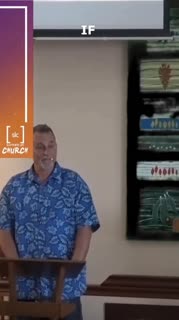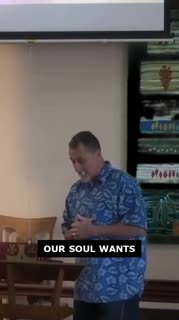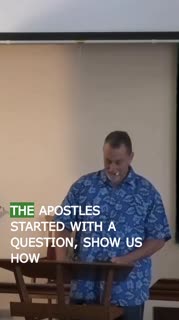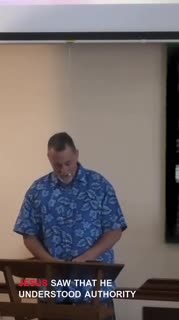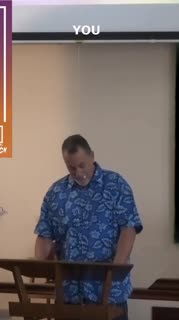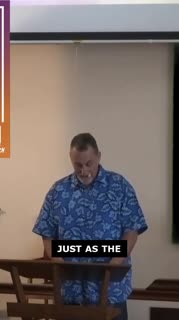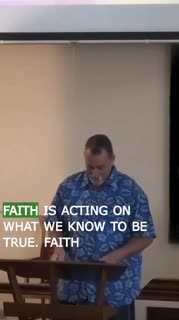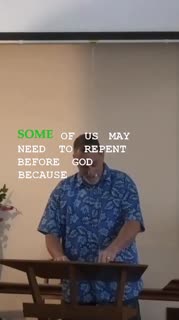Living Faith: Authority, Obedience, and Transformation
Devotional
Sermon Summary
Bible Study Guide
Sermon Clips
"I love what Mark said about when we were doing communion, and he brought up the part where Jesus said, not my will be yours. And that really ties in with what I'm talking tonight. Jesus recognised the authority of the Father. He recognised the authority of the Father. He recognised the authority of the Father. And Jesus was obedient to the Father. Authority and obedience." [00:00:24] (28 seconds)
"So next time you have a problem, or you think you have a problem, if it's night, go outside and have a look up. Maybe it'll remind you. If you have a problem, how big is our universe? How much bigger is our God that we serve and that we give our authority to?" [00:06:08] (22 seconds)
"If your faith hasn't changed you, I'm going to question your faith to begin with. Your faith should change how you live, act, respond to listen, before you begin to dream your circumstances in your everyday life. This isn't just me. I'm going to read some verses from the Bible, some words that Jesus said that say that." [00:12:47] (25 seconds)
"Our soul wants to think of service as slavery or bondage. And it's really, it's a divine thing. It's a spiritual concept. And having been a servant, given the authority over to who we believe, and understanding who God is and what Christ did for us, it's not a negative life of suppression, as people would think, or as in the natural, in our soul, that we would think. It's actually a positive life of newness and freedom." [00:14:39] (36 seconds)
"The apostles started with a question, show us how to increase our faith. And that's how Jesus responded to them. So, for me, that teaches that faith is all about obedience and servant, having a servant heart. And who's it obedience to? It's obedience to God." [00:17:36] (25 seconds)
"Jesus saw that he understood authority and obedience. Authority and obedience. And we need to be on that same path. We need to obey who we put in authority. So, who have you given authority to in your life? It's actually a simple question. It's either God, or it's not God." [00:25:26] (31 seconds)
"Can't you see that faith without good deeds is useless? And some interpretations, they say, dead. Dead. Don't you remember that our ancestor Abraham was shown to be right with God by his actions when he offered his son Isaac on the altar? You see, his faith and his actions worked together. His actions made his faith complete." [00:26:14] (29 seconds)
"Just as the body is dead without breath, so also faith is dead without good works, good actions. Let's not get caught up in that. I love the contrast James uses here. The moral man versus the immoral woman. Abraham, Rahab." [00:27:55] (28 seconds)
"Faith is acting on what we know to be true. Faith is not believing in spite of evidence, but rather obeying in spite of consequence. It's not believing in spite of evidence, but obeying in spite of consequence." [00:37:17] (19 seconds)
"Some of us may need to repent before God because we have dead faith. That's okay. God's a loving God. God forgives us. And if you need to do that tonight, you can just pray to God and say I'm sorry and start living out your faith." [00:40:01] (21 seconds)
Ask a question about this sermon
"So next time you have a problem, or you think you have a problem, if it's night, go outside and have a look up. Maybe it'll remind you. If you have a problem, how big is our universe? How much bigger is our God that we serve and that we give our authority to?" [00:06:08] (22 seconds)
"If your faith hasn't changed you, I'm going to question your faith to begin with. Your faith should change how you live, act, respond to listen, before you begin to dream your circumstances in your everyday life. This isn't just me. I'm going to read some verses from the Bible, some words that Jesus said that say that." [00:12:47] (25 seconds)
"Our soul wants to think of service as slavery or bondage. And it's really, it's a divine thing. It's a spiritual concept. And having been a servant, given the authority over to who we believe, and understanding who God is and what Christ did for us, it's not a negative life of suppression, as people would think, or as in the natural, in our soul, that we would think. It's actually a positive life of newness and freedom." [00:14:39] (36 seconds)
"The apostles started with a question, show us how to increase our faith. And that's how Jesus responded to them. So, for me, that teaches that faith is all about obedience and servant, having a servant heart. And who's it obedience to? It's obedience to God." [00:17:36] (25 seconds)
"Jesus saw that he understood authority and obedience. Authority and obedience. And we need to be on that same path. We need to obey who we put in authority. So, who have you given authority to in your life? It's actually a simple question. It's either God, or it's not God." [00:25:26] (31 seconds)
"Can't you see that faith without good deeds is useless? And some interpretations, they say, dead. Dead. Don't you remember that our ancestor Abraham was shown to be right with God by his actions when he offered his son Isaac on the altar? You see, his faith and his actions worked together. His actions made his faith complete." [00:26:14] (29 seconds)
"Just as the body is dead without breath, so also faith is dead without good works, good actions. Let's not get caught up in that. I love the contrast James uses here. The moral man versus the immoral woman. Abraham, Rahab." [00:27:55] (28 seconds)
"Faith is acting on what we know to be true. Faith is not believing in spite of evidence, but rather obeying in spite of consequence. It's not believing in spite of evidence, but obeying in spite of consequence." [00:37:17] (19 seconds)
"Some of us may need to repent before God because we have dead faith. That's okay. God's a loving God. God forgives us. And if you need to do that tonight, you can just pray to God and say I'm sorry and start living out your faith." [00:40:01] (21 seconds)


